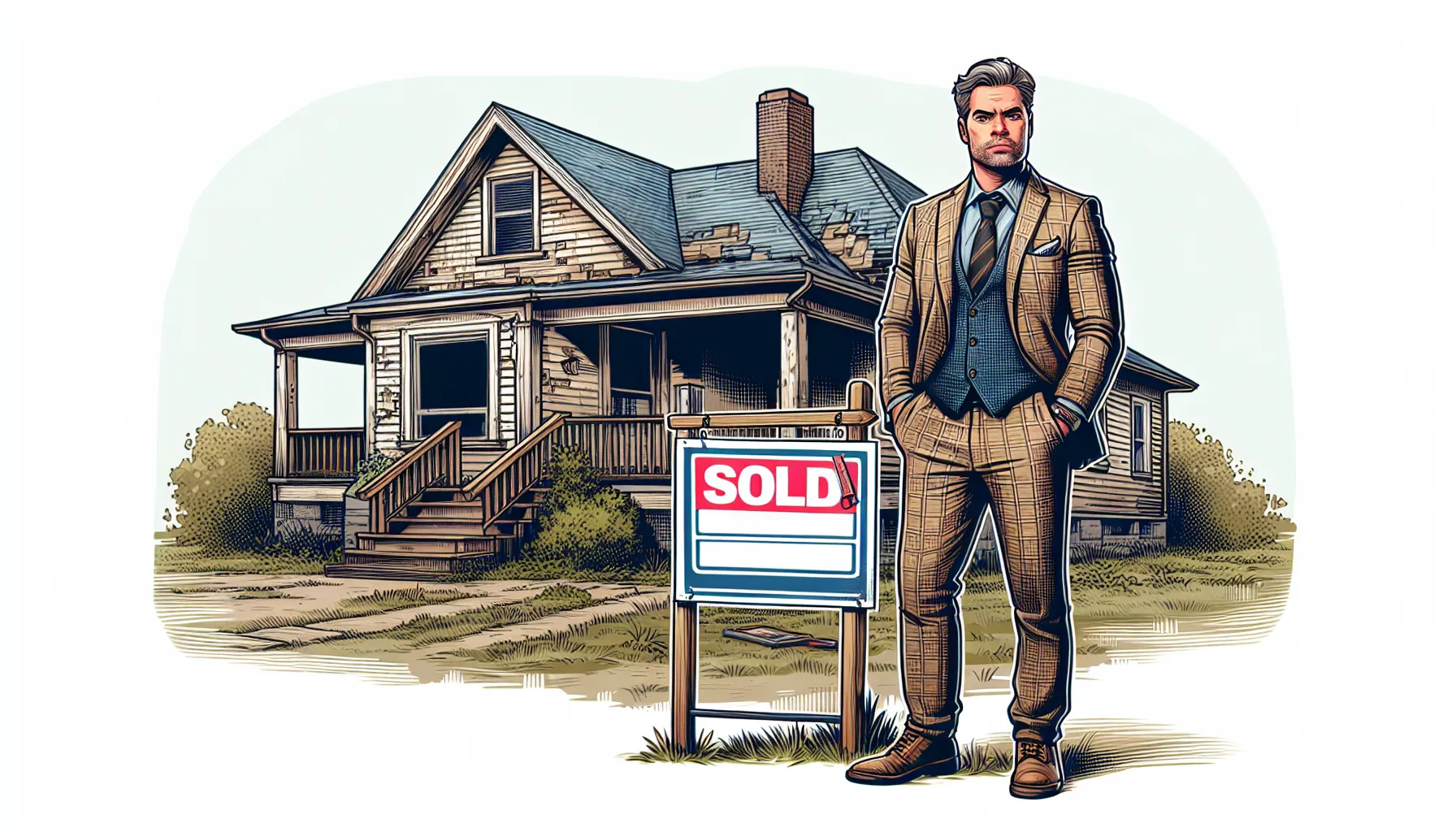Key Takeaways
- “We Buy Houses” companies offer a fast, convenient, and as-is home sale process, making them ideal for sellers needing quick cash or dealing with distressed properties.
- Sellers typically receive a lower offer (70–80% of market value) compared to traditional market sales, trading off profit for speed and certainty.
- Working with reputable buyers reduces risks, but the industry can attract scams and unethical practices—always verify credentials and review contracts carefully.
- These companies provide minimal negotiation flexibility and standardized terms, which may not suit homeowners with unique needs or circumstances.
- Carefully weigh your urgency, financial goals, property condition, and compare alternatives like real estate agents or iBuyers before deciding.
- Making an informed decision ensures you balance speed, convenience, and a fair financial outcome that best fits your situation.
Thinking about a quick home sale and wondering if those “we buy houses” companies are really the answer? Maybe you’re facing repairs you’d rather skip or you just need to move fast. We know it’s stressful to weigh speed against getting a fair offer—and no one wants to fall for a scam or get stuck in a confusing process.
That’s why we’ve pulled together everything you need to make a smart decision. We’ll break down how these fast, cash-based home sales actually work, compare legit buyers, and share real-world tips to protect your interests. Let’s make sure you have the facts before you take the next step.
Understanding “We Buy Houses” Companies
“We Buy Houses” companies offer a direct route for homeowners to sell properties fast, often in just days rather than months. These companies purchase homes for cash, buying properties “as-is” without requiring repairs or upgrades. Sellers dealing with inherited properties, pending foreclosures, or homes in disrepair commonly consider this option when speed and certainty matter most.
Structurally, these companies operate differently from traditional buyers or real estate agents. Instead of listing homes on the open market, they evaluate the property internally and present an all-cash offer. This process typically skips public showings, contingencies, and lengthy negotiations, streamlining the sale for owners who face tight timelines. Firms may vary in how they conduct valuations, with some sending representatives for on-site assessments, while others rely solely on automated or virtual tools.
Legal and financial considerations influence each transaction. Title transfers proceed quickly since cash eliminates the need for lender approval. However, state requirements on disclosures, inspection waivers, or attorney involvement can create variation in closing procedures. Sellers in states like California receive statutory seller disclosures, while those in Texas may see fewer obligations outside of federally mandated paperwork. Property taxes, liens, or unpaid HOA dues often become negotiation points during escrow.
Not all cash buyers adhere to best practices. Legitimate companies disclose their credentials, use fair contracts, and communicate transparently about fees or resale intentions. By contrast, predatory buyers might exploit urgent sellers with lowball offers or unclear terms. We encourage readers to scrutinize references, request proof of funds, and compare multiple offers before signing any agreement.
Would speed and certainty outweigh maximizing sale price for our situation? As we weigh these pros and cons, recognizing the differences in company practices helps us secure both peace of mind and a fair shake when urgency shapes our decisions.
How the “We Buy Houses” Process Works

Understanding how “we buy houses” companies operate helps us manage expectations and avoid surprises during a cash sale. Typically, these investors follow a direct and highly structured sequence that differs from listings with traditional agents. We begin by contacting the buyer—often through an online form, phone call, or email—to provide basic property details like location, square footage, condition, and outstanding debts. Many companies respond within one day, requesting an in-person or virtual walkthrough so they can assess repair needs and marketability.
After an initial review, buyers present a no-obligation all-cash offer, usually within 24 to 72 hours. This offer reflects property condition, local market value, and the cost of needed repairs, often sitting at 70% to 80% of the home’s after-repair value. If we accept, we’ll sign a contract that outlines the purchase price, closing timeline, and contingencies. Unlike traditional deals, these contracts rarely include appraisal or financing clauses, minimizing risk of delays or failed sales. We’re usually not responsible for repairs, and buyers purchase the property “as-is” unless major undisclosed hazards exist.
Once both parties sign, the transaction moves to escrow and title review. Buyers typically order a title search to confirm ownership, liens, or legal issues. State requirements influence how long this process takes, with closings happening in as little as seven days in some regions but extending to 30 days where title or municipal clearances are complex. Throughout, reputable buyers furnish proof of funds and use insured title or escrow agents, letting us track the process and reducing the risk of fraud. Closing costs are often covered by the buyer, though contract terms differ by company and location.
This accelerated path can offer clear relief for those facing urgent deadlines or distressed properties, but it raises important questions: Is the reduced price worth the time saved? How does transparency in valuation and terms compare among buyers? Each step carries consequences that shape our financial outcome, underscoring why it’s vital we scrutinize every element before signing.
Pros of Selling to “We Buy Houses” Companies

Selling to “We Buy Houses” companies creates a distinct transaction experience compared to the traditional market. These buyers streamline the process, helping property owners prioritize speed, convenience, and certainty when weighing their options.
Fast and Convenient Sales
Using a “We Buy Houses” company often results in one of the fastest home sales available. Unlike the standard listing process, which can stretch from 30 to 90 days or longer depending on market conditions, cash buyers routinely close in 7 to 21 days. We see this speed especially benefit those facing foreclosure, handling probate estates, or relocating for work. Transactions unfold on the seller’s timeline, not the buyer’s lender, eliminating the waiting period for financing approvals or inspection negotiations. This immediacy can relieve ongoing stress for owners managing urgent financial or logistical needs. When speed matters more than squeezing out every dollar, this approach can reset the timeline in the seller’s favor.
No Repairs or Cleaning Required
Working with “We Buy Houses” companies means we sell properties in their current condition, regardless of cosmetic or structural problems. Sellers don’t spend time or money fixing foundation cracks, updating kitchens, or deep-cleaning before showings. For homes with deferred maintenance—such as inherited rentals or long-vacant properties—investors commonly accept broken systems, outdated finishes, or even extensive debris. Many buyers waive the need for pre-listing repairs, and some let belongings remain behind for donation or disposal after closing. This as-is purchase model isn’t just convenient; it shields sellers from up-front investment or the risk of repair discoveries causing delays. For many owners, avoiding the unpredictability and cost of renovations brings genuine relief.
Certainty of Closing
Closing with a professional cash buyer often brings greater reliability than traditional sales, where deals can fall through due to failed financing, appraisal gaps, or second thoughts. Cash offers typically come with clear proof of funds and pre-negotiated terms, reducing procedural surprises at escrow. Local regulations still apply—such as required disclosures or transfer stamps—but reputable buyers are accustomed to navigating state-specific hurdles efficiently. This predictability lowers the chance of last-minute collapse and lets sellers move forward with confidence. For those seeking closure amidst uncertainty, the assurance of a scheduled, on-time closing can prove decisive. Which matters more: squeezing out top dollar, or gaining a fail-safe exit with minimal risk?
Cons of Selling to “We Buy Houses” Companies
Selling to a “We Buy Houses” company offers certainty but introduces important trade-offs. We see sellers face unique risks that can impact financial outcomes, timeline expectations, and even legal standing, depending on the company’s practices and the state’s regulatory landscape.
Lower Sale Price Offers
Working with cash buyers typically means accepting an offer well below traditional market value. Most “We Buy Houses” companies calculate offers based on the property’s after-repair value, minus estimated renovation costs and a margin for profit; as a result, sellers often receive 70% to 80% of the likely retail price. For example, on a home valued at $300,000 (after repairs), typical offers might land between $210,000 and $240,000, even if only modest rehabbing’s needed. This pricing model reflects the risks investors assume but leaves many homeowners with less equity than expected. Owners who owe close to their home’s current value, or those relying on maximum profit for another purchase, can find this margin especially limiting. If maximizing proceeds is critical, how does a reduced cash offer stack up against your long-term goals?
Potential for Scams or Unethical Practices
Some buyers use aggressive tactics, hidden fees, or misleading contracts. Not every “We Buy Houses” company operates transparently, and the lack of standardized oversight increases the risk of encountering unethical actors. We’ve observed cases where sellers signed contracts containing unexpected contingencies or flexible closing timelines that favored the buyer—sometimes resulting in last-minute price reductions or even canceled transactions. In states with less robust real estate licensing requirements, predatory operators often surface more freely, making it essential to verify credentials, request proof of funds, and consult with an attorney or reputable title company before signing. Sellers facing urgent timelines may feel pressure to ignore warning signs, which can end in costly disputes or loss of control over the sale.
Limited Negotiation Power
Homeowners have little control over the terms once a cash investor sets the offer. “We Buy Houses” companies streamline their process for operational efficiency: offers are typically non-negotiable and standardized, often accompanied by boilerplate contracts that restrict a seller’s ability to request concessions such as extended closing dates, rent-backs, or post-acceptance repairs. Unlike traditional transactions where agents can advocate and negotiate price or terms, here we encounter a one-size-fits-all approach. If unique circumstances require flexibility—like staying in the home after closing or coordinating with a complex estate sale—these limitations put sellers at a disadvantage. Are speed and simplicity worth the trade-off for tailored solutions that a traditional listing might offer?
Factors to Consider Before Choosing This Option

Every seller’s journey is shaped by urgency, financial realities, property specifics, and available alternatives. By weighing these factors in relation to our goals, we lay the groundwork for a more informed decision.
Your Urgency and Financial Needs
Our urgency and financial position guide the practical options for selling a home quickly. If we’re facing foreclosure, relocation, divorce, or job loss, the appeal of a company promising cash within days can outweigh the drawback of a lower offer. Homeowners pressed for time tend to value certainty over extracting maximum equity, especially if mortgage payments, liens, or legal deadlines threaten financial stability. By contrast, if we have flexibility, we might benefit from marketing the property through an agent or traditional listing, where offers may reach or exceed market value and timelines accommodate extended negotiations. Are we prioritizing immediate relief, or can we afford to be patient for a better price? Pinpointing our urgency clarifies the weight we place on speed versus sale proceeds—an essential first step before entering any agreement.
Condition and Location of the Property
Our home’s condition and its geographic context directly influence both its marketability and the viability of a cash sale. “We Buy Houses” companies often target properties that need significant repairs, are outdated, or are otherwise unlikely to attract conventional buyers—such as inherited homes with deferred maintenance, fire or water-damaged structures, or homes in less desirable neighborhoods. In competitive metro areas like Dallas or Phoenix, even homes in disrepair may attract investor interest, while properties in rural or declining markets may see less aggressive offers or longer closing timelines. State and city zoning, occupancy restrictions, or required disclosures can introduce complexity; for example, California’s Title 24 building standards or New York’s lead-paint disclosures might affect both evaluation and transaction speed. Before accepting an offer, it’s important to ask: Does the property’s state justify a cash-only route, or would targeted repairs and traditional marketing yield a better result?
Alternatives to “We Buy Houses” Companies
Exploring alternatives ensures we don’t overlook options better aligned with our objectives. Traditional agents can list properties on the MLS, creating competition among buyers and often netting a higher sale price—though this may require months, listing fees, and property preparation. Direct-to-investor sales or iBuyer platforms like Opendoor and Offerpad promise speed and convenience, though their offers sometimes reflect similar markdowns to “We Buy Houses” companies, plus added service fees. Selling “for sale by owner” gives us control but demands marketing expertise and comfort with negotiations, contracts, and potential legal pitfalls. Local housing authorities or nonprofit programs occasionally help owners facing specific hardships, providing unique exit paths with varying qualifications. How do these alternatives compare in terms of speed, cost, and likelihood of a safe, efficient closing for our particular property? By measuring each option against our needs and circumstances, we gain a clearer sense of which path truly fits our situation.
Conclusion
Deciding whether to work with a “We Buy Houses” company comes down to our priorities and unique circumstances. If speed and convenience are at the top of our list these buyers can offer a fast and hassle-free solution.
Still we owe it to ourselves to do the research check credentials and compare all available options. Taking a thoughtful approach helps us protect our interests and make the best choice for our financial future.
Frequently Asked Questions
What is a “We Buy Houses” company?
A “We Buy Houses” company is a business that purchases homes directly from sellers for cash, often buying properties in any condition. They typically offer a quick, straightforward selling process without requiring repairs or showings.
How do “We Buy Houses” companies determine their offers?
These companies estimate your home’s after-repair value (ARV) and usually offer 70% to 80% of that amount, subtracting estimated repair costs. Offers are typically lower than traditional market value but reflect the convenience and speed of the sale.
How fast can I sell my home to a cash buyer?
You can usually close with a cash buyer in as little as 7 to 21 days, depending on your location and any legal or title requirements.
Do I need to make repairs before selling to a “We Buy Houses” company?
No. These companies buy homes “as-is,” meaning you won’t need to make any repairs or clean up the property before selling.
Are all “We Buy Houses” companies legitimate?
No, not all are reputable. Always check references, request proof of funds, and compare multiple offers to avoid scams or predatory practices.
Will I get market value for my home?
Typically, no. Offers are generally 70% to 80% of your home’s estimated after-repair value, so you may receive less than you would through a traditional sale.
What are the main benefits of selling to a “We Buy Houses” company?
Major benefits include fast closings, a simple process, no need for repairs or showings, and fewer risks of deals falling through due to financing.
What are the downsides of selling to a cash buyer?
The main disadvantages are receiving a lower price, limited negotiation power, and potential exposure to scams if you do not carefully vet the company.
Who should consider selling to a cash buyer?
Homeowners facing urgent situations like foreclosure, inheritance, relocation, or those with properties needing significant repairs may benefit most from a fast, cash-based sale.
What alternatives exist to using “We Buy Houses” companies?
Alternatives include hiring a traditional real estate agent, selling directly to investors, or trying a “for sale by owner” (FSBO) approach, which might result in a higher sale price but usually takes more time and effort.
How can I protect myself when selling to a cash buyer?
Research the company thoroughly, request written proof of funds, compare multiple offers, read contracts carefully, and consider getting advice from a real estate attorney before signing anything.



